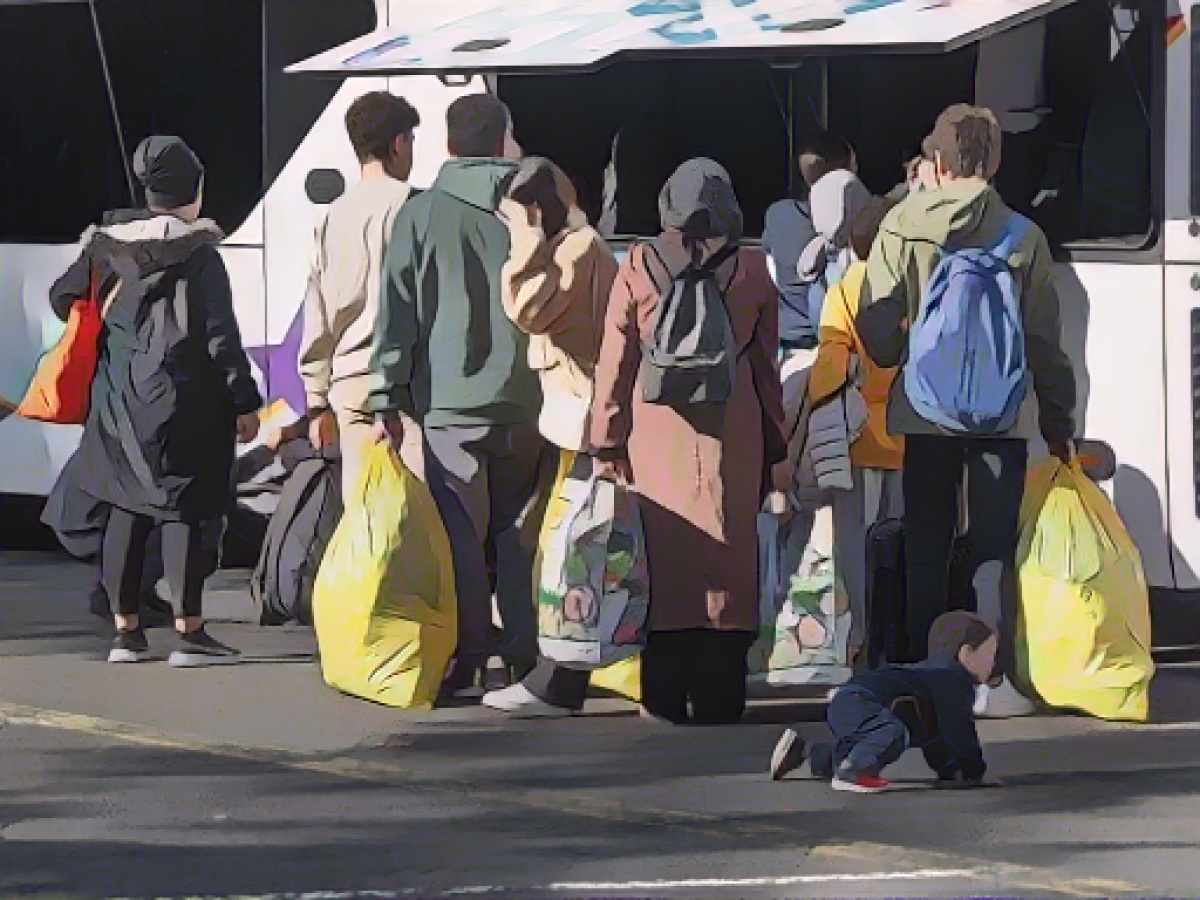Federal states and municipalities: more money for refugee accommodation
Ahead of the federal-state summit on Monday, Lower Saxony's Minister President Stephan Weil is calling for a national consensus on migration policy.
The SPD politician told the German Press Agency in Hanover that this would be an important sign for citizens of a shared sense of responsibility. Mecklenburg-Western Pomerania's Minister President Manuela Schwesig (SPD) once again insisted on lump sums to be paid by the federal government to the federal states for the accommodation of asylum seekers.
On Monday, the heads of state governments will discuss numerous issues with Federal Chancellor Olaf Scholz (SPD), including the financing of refugee accommodation. According to the federal states, the federal government wants to reduce its share from 3.75 billion euros this year to 1.25 billion euros next year. They are not prepared to accept this. In a resolution in mid-October, they had demanded a lump sum of 1.25 billion euros and at least 10,500 euros per migrant.
Dispute over refugee funding
Schwesig repeated the demand for lump sums for refugees in the "Interview of the Week" on Deutschlandfunk radio. "10,500 euros lump sum per asylum seeker. That would be a dynamic system. If more come, there is more money, and if there are fewer, there is less".
Reinhard Sager, President of the German Association of Counties, called for "the full assumption of accommodation costs for recognized refugees, which are rising sharply due to the influx from Ukraine". Sager told Bild am Sonntag: "By 2023, we will be demanding three billion euros from the federal government". War refugees from Ukraine do not have to apply for asylum.
Calls for a reduction in the number of asylum seekers
Justice Minister Marco Buschmann (FDP) also told Bild am Sonntag that the Minister Presidents' Conference must send out the signal "that we want to achieve a turnaround in migration together". Weil also emphasized that the number of people coming to Germany must fall. "It doesn't help, we have to reduce the number of people coming to us every week."
Alexander Dobrindt, head of the CSU regional group, stated that the number of people arriving in Germany each year should be reduced to 100,000. "Last year 240,000 asylum applications, this year it will be over 300,000, plus one million refugees from Ukraine. A look at the situation in our municipalities shows that a figure of 100,000 is the more likely limit in future," he told Bild am Sonntag.
In order to protect local authorities from being overloaded, the Association of Cities believes that asylum procedures must be accelerated. "The federal government must provide more staff at the Federal Office for Migration and Refugees so that hearing procedures can be carried out promptly and even faster," said Markus Lewe, President of the Association of Cities and Towns, to the Funke Mediengruppe. The federal states must ensure that proceedings at the administrative courts are completed more quickly.
Criticism of the tone of the migration debate
Meanwhile, the Federal Government Commissioner for Integration, Reem Alabali-Radovan, complained about the tone of the asylum debate. "A tone that is becoming ever harsher and more populist, as well as presenting new bogus solutions every day, is dividing our society into "the others" and "us"," the SPD politician told the Redaktionsnetzwerk Deutschland (RND). It was wrong to use the migration issue as the cause of all problems in Germany.
- Despite the calls for a reduction in the number of asylum seekers, Mecklenburg-Western Pomerania's Minister President Manuela Schwesig continues to advocate for lump sums from the federal government for accommodating asylum seekers, proposing a dynamic system where more money is allocated based on the number of refugees.
- Federal Chancellor Olaf Scholz will discuss the financing of refugee accommodation with the heads of state governments on Monday, with the federal states expressing their unwillingness to accept the proposed reduction in funding from 3.75 billion euros this year to 1.25 billion euros next year.
- In the midst of this dispute, Lower Saxony's Minister President Stephan Weil and Justice Minister Marco Buschmann (FDP) both underscored the need to reduce the number of people arriving in Germany, with Weil suggesting that accelerating asylum procedures could alleviate the burden on municipalities, such as those represented by the Association of Cities.
Source: www.dpa.com







